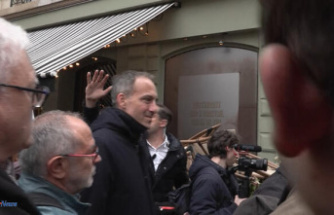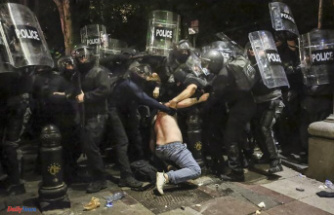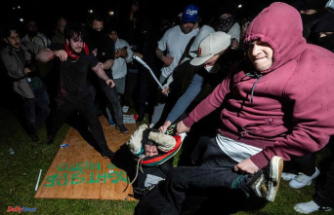In Germany, writers are allowed to write what and how they like. However, Uwe Tellkamp misses clearer resistance to gender-equitable language in them. The overwhelming majority reject gender, says the Dresden author, hitting the nerve of his Neubrandenburg audience.
In the opinion of author Uwe Tellkamp, writers in Germany should position themselves more clearly than before against the introduction of gender language rules. "Language is like an organ with a thousand voices," said Tellkamp on Tuesday evening at a reading on the occasion of the Uwe Johnson Literature Days in Neubrandenburg. However, the controversial gendering is "a rape of language."
It's like taking two organ stops away from an organist because they're somehow burdened with colonialism. Then the organ no longer sounds. An overwhelming majority of the population reject that. He couldn't understand why authors weren't campaigning more intensively against it, the writer said to loud applause.
In Neubrandenburg, the Dresden native presented his new novel "Der Schlaf in den Uhren", the sequel to his Wende novel "Der Turm" published twelve years ago. He also revealed himself as an admirer of the GDR writer Brigitte Reimann (1933-1973), who had lived in Neubrandenburg. "She really impressed me," said Tellkamp after a visit to the Reimann Literature Museum. Reimann, whose main novel "Franziska Linkerhand" is considered, was one of the best-known and most controversial authors in the GDR.
Tellkamp was criticized after statements about refugees and allegedly threatened repression against dissidents in Germany. He sympathized with the Pegida movement and repeatedly criticized a so-called "corridor of attitudes" between desired and tolerated opinions. In 2017, he spoke out against the exclusion of right-wing publishers from the Frankfurt Book Fair. A year later, at a panel discussion, he claimed without any evidence that 95 percent of all refugees came to Germany "to immigrate to the social systems."
In 2008 Tellkamp received the Johnson Prize in Neubrandenburg for the novel "Der Turm", later the German Book Prize and the National Prize. The Uwe Johnson Days want to give more space to dialogue in society and end on October 27th.












